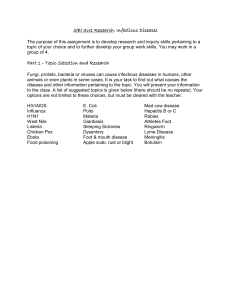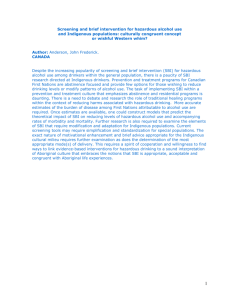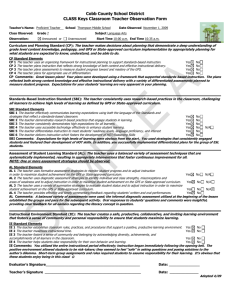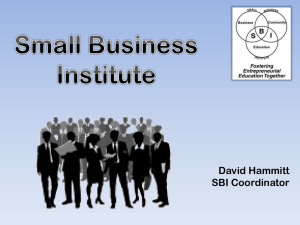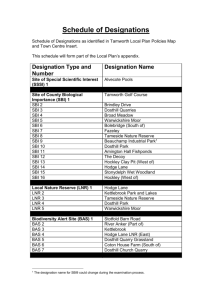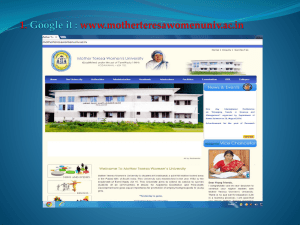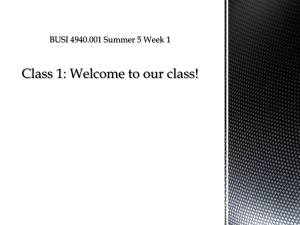the Project MARS Consent Form
advertisement
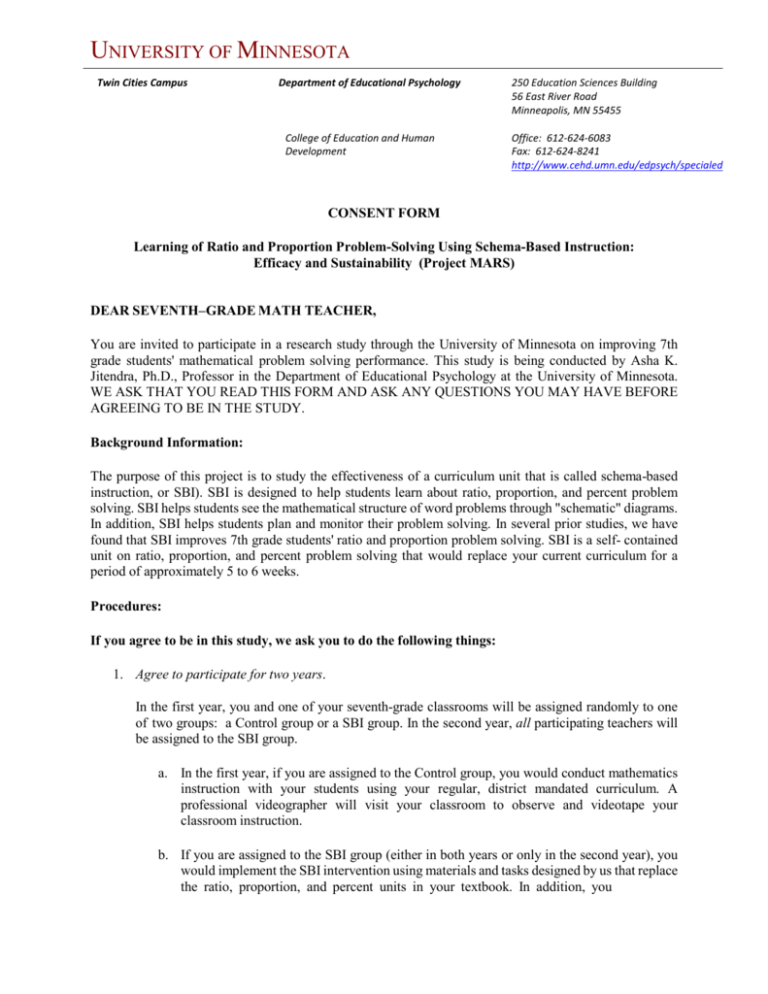
UNIVERSITY OF MINNESOTA Twin Cities Campus Department of Educational Psychology College of Education and Human Development 250 Education Sciences Building 56 East River Road Minneapolis, MN 55455 Office: 612-624-6083 Fax: 612-624-8241 http://www.cehd.umn.edu/edpsych/specialed CONSENT FORM Learning of Ratio and Proportion Problem-Solving Using Schema-Based Instruction: Efficacy and Sustainability (Project MARS) DEAR SEVENTH–GRADE MATH TEACHER, You are invited to participate in a research study through the University of Minnesota on improving 7th grade students' mathematical problem solving performance. This study is being conducted by Asha K. Jitendra, Ph.D., Professor in the Department of Educational Psychology at the University of Minnesota. WE ASK THAT YOU READ THIS FORM AND ASK ANY QUESTIONS YOU MAY HAVE BEFORE AGREEING TO BE IN THE STUDY. Background Information: The purpose of this project is to study the effectiveness of a curriculum unit that is called schema-based instruction, or SBI). SBI is designed to help students learn about ratio, proportion, and percent problem solving. SBI helps students see the mathematical structure of word problems through "schematic" diagrams. In addition, SBI helps students plan and monitor their problem solving. In several prior studies, we have found that SBI improves 7th grade students' ratio and proportion problem solving. SBI is a self- contained unit on ratio, proportion, and percent problem solving that would replace your current curriculum for a period of approximately 5 to 6 weeks. Procedures: If you agree to be in this study, we ask you to do the following things: 1. Agree to participate for two years. In the first year, you and one of your seventh-grade classrooms will be assigned randomly to one of two groups: a Control group or a SBI group. In the second year, all participating teachers will be assigned to the SBI group. a. In the first year, if you are assigned to the Control group, you would conduct mathematics instruction with your students using your regular, district mandated curriculum. A professional videographer will visit your classroom to observe and videotape your classroom instruction. b. If you are assigned to the SBI group (either in both years or only in the second year), you would implement the SBI intervention using materials and tasks designed by us that replace the ratio, proportion, and percent units in your textbook. In addition, you would attend two days of professional development, where you will receive materials and learn SBI procedures. You would also be provided with continued support as needed throughout the study in your implementation of SBI. One or more of our project team members will visit your classroom to observe and videotape your implementation of SBI. We would ask you to implement SBI with your students for 45-50 minutes per session, 5 sessions per week, for approximately 5 to 6 weeks. 2. Complete an online test of your knowledge of the instructional content (ratios, proportion, and percents) during your first year of participation in the study. At this time, we will also collect demographic information about you (e.g., age, gender, ethnicity/race, number of years teaching, whether you have an undergraduate degree in mathematics and/or a graduate degree, whether you are elementary and/or secondary certified) 3. Administer mathematics assessments (e.g., project designed mathematical problem-solving test, standardized open-ended mathematics test) to your students at the beginning and end of each study year. 4. Allow a professional videographer to tape one-two instructional classes within the 6-week study in your classroom. Risks and Benefits of being in the Study: There are minimal risks associated with participation in this study. More specifically, the assessments to be conducted will take some time away from classroom instruction. However, these tests are very similar to more typical end-of-unit tests and taking these tests is important for understanding how and what students are learning. There are benefits to participation in this project, including learning about teaching methods and curriculum that can improve student learning of ratios, proportions, and percents. In our past research, teachers are very positive about SBI, enjoy teaching our materials, and find that SBI helps most students become better problem solvers. Compensation: Payment will depend upon your random cohort assignment. If you are assigned to Cohort 1, you will receive $300 Professional Development (PD) payment after you complete the two-day training. (Please note that some school districts may have restrictions regarding how we reimburse you for this amount. In some cases, we may be required to reimburse you in the form of a gift card vs. cash, but whatever the format the amount remains constant across school districts.) In addition, you will receive your $1,000 stipend in late spring of 2016 after administration of the last assessment. Likewise, the second installment of the $1,000 stipend for Year 2 participation will be paid in spring of 2017. If you are randomly assigned to Cohort 2, you will receive your $400 payment in late spring of 2016 after administration of the last assessment. The following fall of 2016 you will receive $300 Professional Development payment after completing PD training with the remaining $1,000 stipend being paid in late spring of 2017. Confidentiality: The records of this study will be kept private. In any sort of report we might publish, we will not include any information that will make it possible to identify a subject. Research records will be stored securely and only researchers will have access to the records. Voluntary Nature of the Study: Participation in this study is voluntary. Your decision whether or not to participate will not affect your current or future relations with the University of Minnesota or with your school district. If you decide to participate, you are free to not answer any questions or withdraw at any time without affecting those relationships. Contacts and Questions: The researcher conducting this study is Dr. Asha Jitendra. You may ask any questions you have now. If you have questions later, you may contact Asha at the University of Minnesota, 612-626-7116, jiten001@umn.edu. If you have any questions or concerns regarding this study and would like to talk to someone other than the researcher(s), contact the Research Subjects’ Advocate Line, D528 Mayo, 420 Delaware St. Southeast, Minneapolis, Minnesota 55455; (612) 625-1650. Statement of Consent: I have read the above information. I have asked questions and have received answers. I consent to participate in the study. Print your name: Signature: Date: Middle School & Principal: RETURN SIGNED CONSENT FORM AND PRINCIPAL LETTER OF SUPPORT TO: SUSAN SLATER, slat0013@umn.edu OR MAIL HARD COPIES TO: Susan Slater, Project MARS Coordinator University of Minnesota 56 E. River Road Minneapolis, MN 55455
